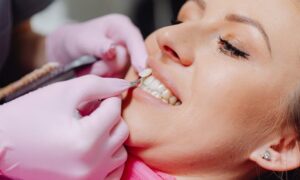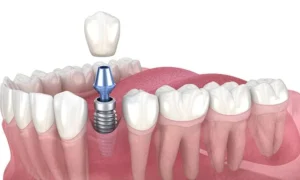Deciding to get braces can be an exciting step towards achieving the smile you’ve always wanted. However, there are several important factors to think about first before taking the plunge. Read on for key considerations when deciding if braces are right for you.
Costs and Payment Plans
Braces are a significant investment, with costs ranging from £2,000 to £5,000 depending on your treatment plan. Check if braces will be covered by the NHS or private dental insurance. If you will be paying out-of-pocket, ask your orthodontist about payment plans to split costs into affordable monthly payments.
Treatment Duration
Be prepared for a long-term commitment. Most people wear braces for 1-3 years. Treatment times vary based on factors like your specific orthodontic issues and how diligently you wear your braces. Adult braces often take longer than braces for children and teens. Discuss expected treatment length with your orthodontist.
Required Appointments
During braces, you’ll need regular adjustment appointments, typically every 4-8 weeks. Appointments ensure your braces are applying steady pressure to move your teeth into proper alignment. Make sure you can commit to frequent orthodontic visits for the full duration of treatment. You can visit website to find out more.
Diet Changes
Braces limit the foods you can eat. Foods that are sticky, crunchy or chewy can damage brackets or wires. You’ll need to avoid popcorn, nuts, hard sweets, ice, and more. Prepare for a pretty strict dental diet throughout your treatment. Your orthodontist will provide guidelines on braces-friendly foods.
Oral Hygiene Efforts
With braces, brushing and flossing take more time and effort. Food particles easily get trapped by brackets and wires, putting you at increased risk for plaque buildup, discolouration, and white spot lesions if oral hygiene is inadequate. Invest in specialised orthodontic brushes, plaque removers, and floss threaders. Also, schedule more frequent dental cleanings.
Speech Changes
Braces can temporarily affect your speech, causing a slight lisp. You should adapt within a couple weeks as your mouth adjusts. Be patient as your speech fine-tunes. Practice speaking out loud to get accustomed to how your mouth feels with braces.
Appearance Consciousness
Braces are a big aesthetic change to your smile. It takes time to get used to your new brace-filled smile staring back at you in photos. Prepare for lots of attention and questions from others too. If you’ll struggle with the prominence of braces, discuss subtle clear aligner options with your orthodontist.
Discomfort
Some pain is inevitable when teeth shift position. Especially during adjustments, prepare for soreness lasting for a few days after tightening. Over-the-counter pain relievers can help. The discomfort is temporary and worth the final results.
Lifestyle Restrictions
Braces pose some limitations in activities. Protective mouthguards are required for sports to avoid damaging your braces. Instruments like the clarinet or flute may be harder to play with a changed bite. Discuss any concerns about braces affecting performance. Your orthodontist can suggest alternatives.
Ongoing Retention
After your braces come off, you’ll need to wear a retainer. Retainers are necessary to keep teeth from shifting back. You may need to wear a retainer full-time for a period and then nightly for years after treatment. Retention is a crucial part of the process for permanent results.
Proper orthodontic care requires dedication through the entire braces process—from consultations and payments to diet changes and retainer wear. Weigh the commitment along with the rewards of straighter, properly aligned teeth that come with braces. If you stay diligent with treatment, you can achieve the smile of your dreams.



































